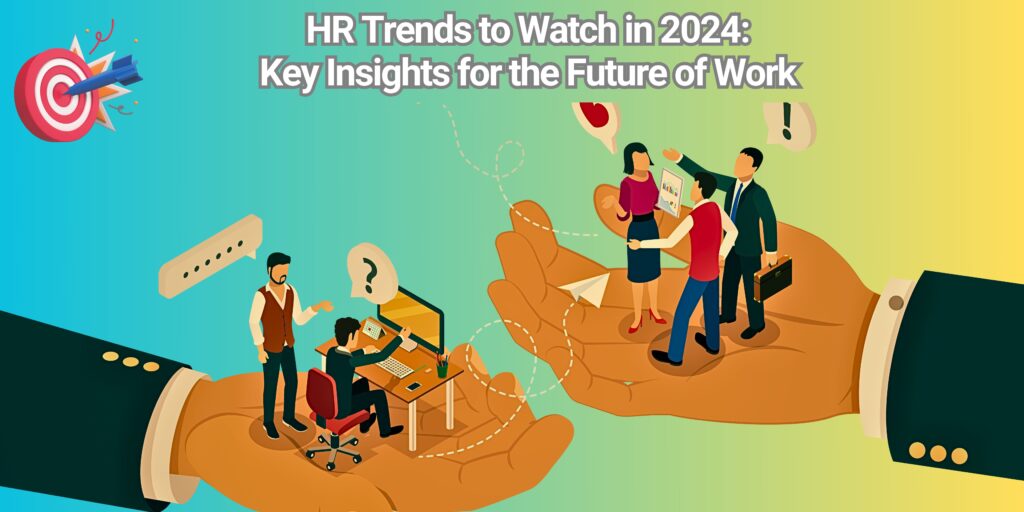Introduction to HR Trends in 2024
As we move into 2024, organizations must adapt to the rapidly evolving landscape of human resources. HR trends are shaping the future of work, influencing how businesses attract, retain, and develop talent. From embracing remote work to prioritizing employee well-being, the current HR trends reflect a shift towards more holistic and inclusive approaches in human capital management.
This article explores the key human capital trends that HR professionals and business leaders should watch in 2024. By understanding these trends, organizations can not only stay competitive but also foster a more engaged and productive workforce. With advancements in technology and changing employee expectations, it’s essential to keep abreast of the latest HR trends to effectively navigate the challenges and opportunities ahead.
The Rise of Remote Work and Hybrid Models
Adapting to New Work Environments
The COVID-19 pandemic accelerated the adoption of remote work, and in 2024, it continues to dominate trends in talent acquisition and workforce management. Many organizations are now embracing hybrid models, allowing employees to work both remotely and in the office. This flexibility not only meets employee preferences but also enhances productivity and satisfaction.
Key Considerations for HR Leaders
HR leaders must consider the implications of remote work on company culture, communication, and collaboration. Implementing tools that facilitate seamless communication and project management is crucial. Regular check-ins and virtual team-building activities can help maintain a strong organizational culture, even when teams are physically apart.
The Impact on Talent Acquisition
Remote work expands the talent pool, enabling organizations to attract candidates from diverse geographical locations. HR teams should adjust their recruitment strategies to leverage this broader reach, using virtual interviews and online assessments to streamline the hiring process.
Importance of Employee Well-being and Mental Health
Prioritizing Mental Health Initiatives
In 2024, employee well-being remains a cornerstone of effective human resources trends. Organizations are increasingly recognizing the importance of mental health in driving employee engagement and productivity. Implementing comprehensive mental health programs can lead to a more resilient workforce.
Strategies for Enhancing Well-being
HR professionals should focus on creating a supportive environment that encourages open discussions about mental health. Offering resources such as counseling services, wellness programs, and flexible working hours can significantly enhance employee well-being. Furthermore, regular employee feedback can help organizations refine their well-being initiatives to better meet employee needs.
Measuring the Impact
Organizations must also establish metrics to assess the effectiveness of their well-being programs. Surveys and feedback mechanisms can provide insights into employee satisfaction and engagement levels, allowing HR teams to make data-driven adjustments to their strategies.
AI and Automation in HR Processes
The Role of Technology in HR
HR technology trends are rapidly transforming how HR functions operate. In 2024, AI and automation are becoming increasingly integral to HR processes, enhancing efficiency and accuracy. From recruitment to onboarding, technology is streamlining various HR functions.
Benefits of AI in Recruitment
AI-powered tools can assist in sourcing candidates, screening resumes, and even conducting preliminary interviews. This not only speeds up the hiring process but also reduces biases in candidate selection. HR professionals should explore various AI tools to identify the ones that align best with their recruitment goals.
Automating Administrative Tasks
Automation is also improving administrative functions, such as payroll and performance management. By automating routine tasks, HR teams can focus on strategic initiatives that drive organizational growth. Emphasizing HR digitalization will allow organizations to allocate resources more effectively and enhance overall productivity.
Diversity, Equity, and Inclusion Strategies
The Growing Importance of DEI
As societal awareness of diversity, equity, and inclusion (DEI) continues to rise, HR leaders must prioritize these initiatives in their trends in human resource management. A diverse workforce not only fosters creativity and innovation but also reflects a company’s commitment to social responsibility.
Implementing Effective DEI Programs
Organizations should develop comprehensive DEI strategies that encompass recruitment, retention, and employee development. This includes setting measurable goals, providing training, and creating inclusive policies. Regularly reviewing these initiatives is essential to ensure they remain effective and relevant.
Celebrating Diversity
Encouraging a culture of celebration around diversity can enhance employee morale and engagement. Organizations should recognize and celebrate various cultural events and milestones, fostering a sense of belonging among all employees.
Upskilling and Continuous Learning in the Workplace
The Need for Ongoing Development
In a rapidly changing job market, the need for continuous learning is paramount. Current trends in human resource management emphasize the importance of upskilling employees to keep pace with technological advancements and industry changes.
Creating a Learning Culture
HR leaders should promote a culture of continuous learning by offering training programs, workshops, and mentorship opportunities. Encouraging employees to pursue professional development can lead to improved job satisfaction and retention rates.
Leveraging Technology for Learning
Utilizing technology to facilitate learning can enhance accessibility and engagement. Online courses, webinars, and learning management systems (LMS) allow employees to learn at their own pace, making it easier for them to integrate learning into their daily routines.
Conclusion: Preparing for the Future of Work
As we look towards 2024, the HR trends discussed in this article highlight the importance of adaptability and innovation in human resources. By prioritizing remote work, employee well-being, AI integration, DEI, and continuous learning, organizations can position themselves for success in the evolving workplace.
HR professionals and business leaders must stay informed about these trending HR topics to navigate the complexities of the future of work effectively. Embracing these trends will not only enhance organizational performance but also contribute to a more engaged and satisfied workforce.
To learn more about implementing these strategies in your organization, visit themsigroup.com for valuable resources and insights.

